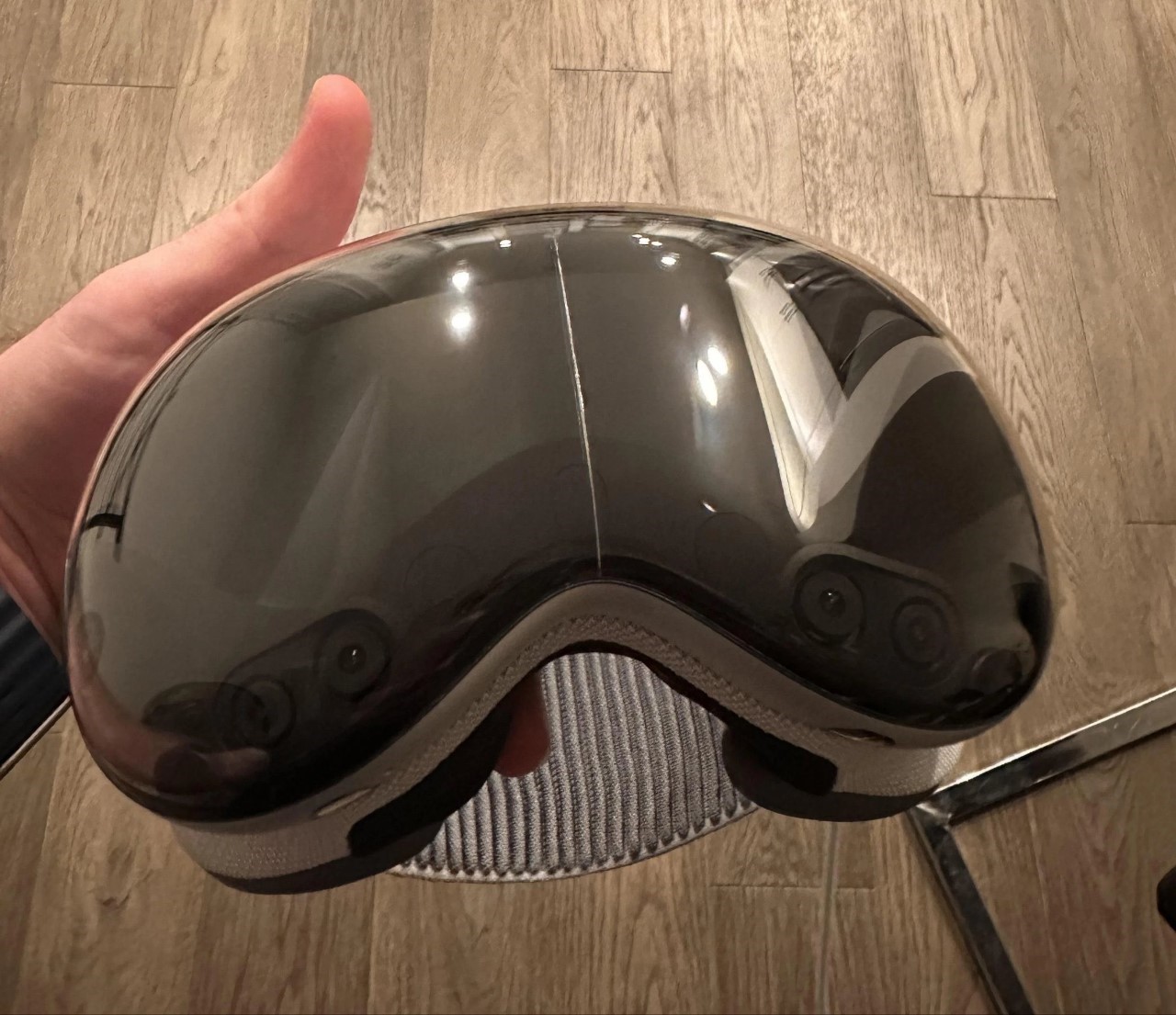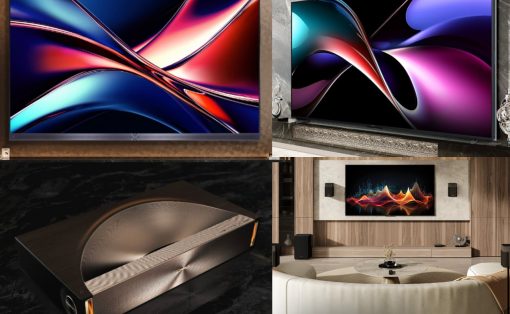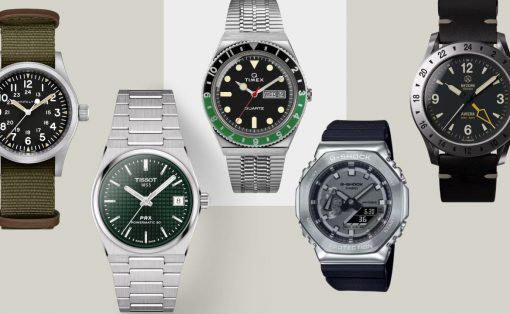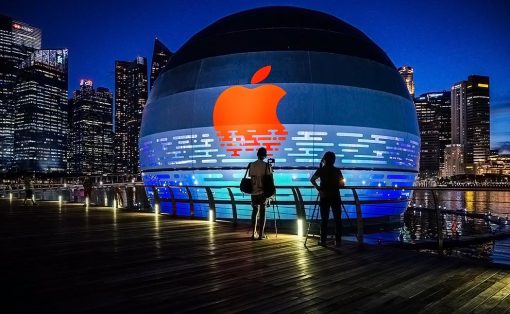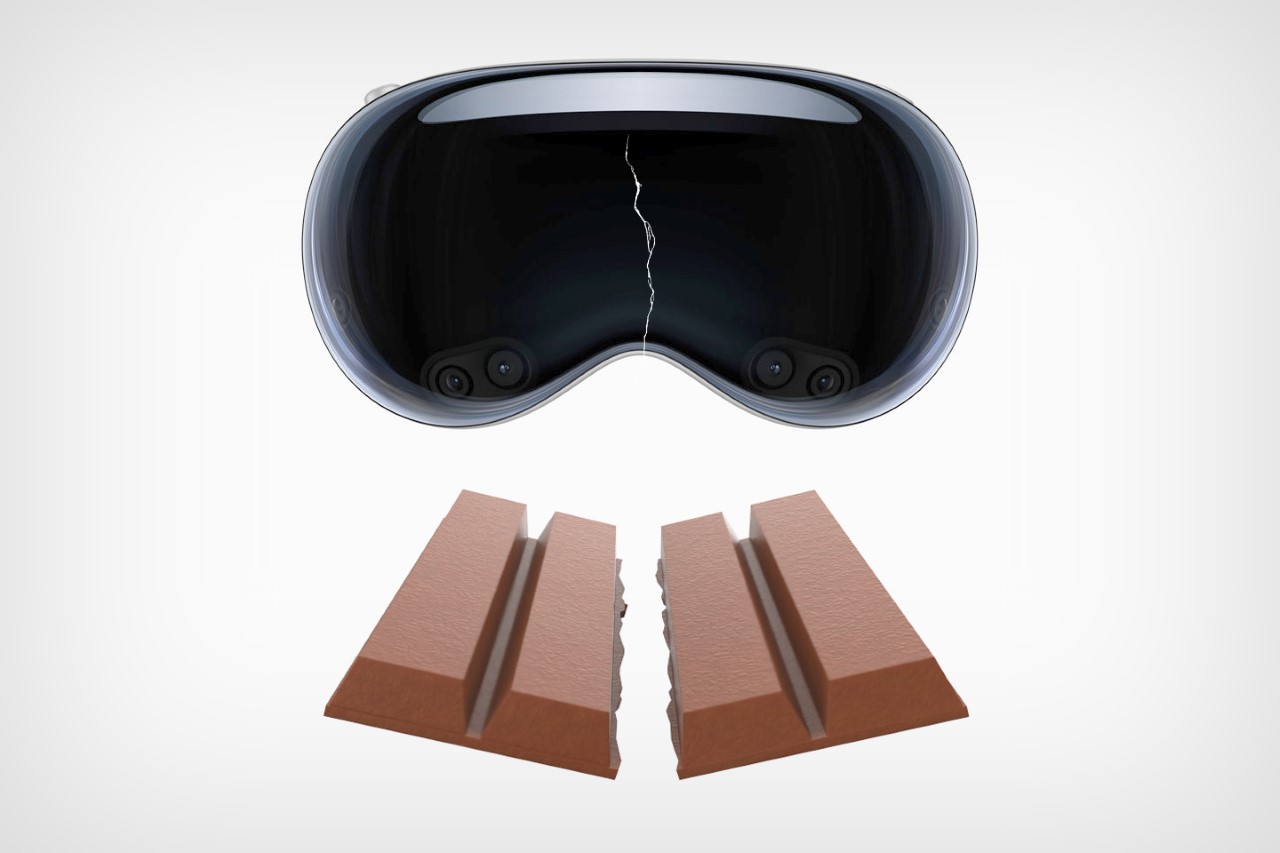
Feel free to call it the “Spatial KitKat Hypothesis”…
The Apple Vision Pro wasn’t designed to bend, but when you’ve got two straps pulling on the massive headset from either side with a human head in the middle acting as a wedge of sorts, the headset’s bound to feel some stress at its weakest point. Theoretically, that weakest point lies at the nose bridge, or the narrowest part of the Vision Pro’s design. If you imagine the Vision Pro to be a massive KitKat, or a Toblerone, or any bar of chocolate for that matter, it’s usually the narrowest part that’s designed to snap, resulting in a perfectly broken piece of chocolate. The problem here, however, is that this particular ‘chocolate’ is a cutting-edge spatial computer that costs upwards of $3500.
It seems like Apple products don’t really have great luck when it comes to structural soundness. If you remember exactly 10 years ago, #BendGate was plaguing the 2014 iPhone 6, a scandal that arose after people found their iPhones bending in their pockets when they sat down. Sure, Apple worked hard to fix the iPhone 6’s flimsy design (in part because people were just walking into Apple Stores and folding iPhones in half), but #bendgate still lives on in infamy, especially through its latest avatar, or what people are calling #CrackGate. Multiple users are reporting that the Vision Pro’s glass is cracking almost perfectly down the center, for no apparent reason. The crack runs almost perfectly symmetrically, going from the nose upwards, causing an extremely visible fault line right down the center. While it doesn’t seem to affect the Vision Pro’s actual functionality, it’s just like getting a scratch right down the side of your Lamborghini, emotionally gut-wrenching.
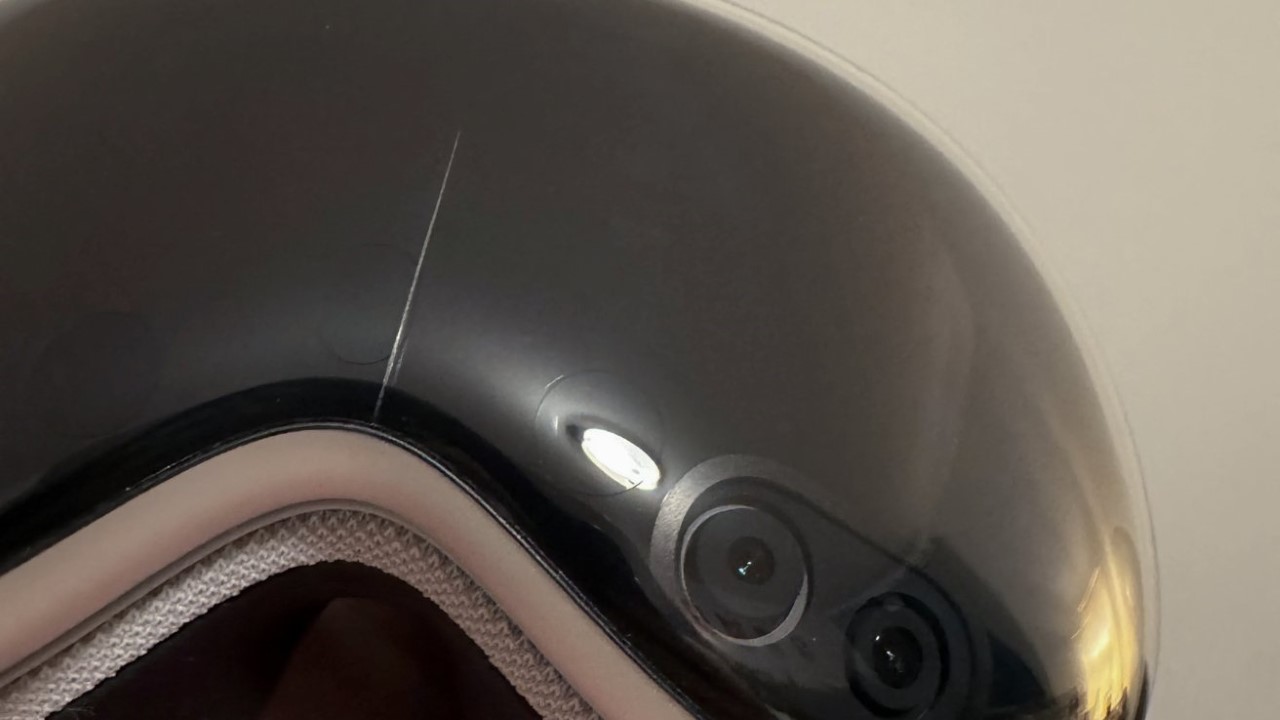
The reason, however, isn’t really clear (in part because Apple hasn’t officially addressed the issue or offered repairs), but multiple users have their own theories. Some sleuths noticed that the crack almost always emerges right near the LiDAR sensor, causing speculations that the invisible light from the sensor may be weakening the glass. Others claim it’s a heat-related issue, caused by the fact that most people don’t turn their Vision Pros off after using it for the day, causing it to heat up and the aluminum frame to expand, cracking the glass. The latter theory makes much more sense than the former, but there’s yet another issue that could just contribute to the glass’ structural weakness, and its most simple explanation lies in the shape of a KitKat bar.
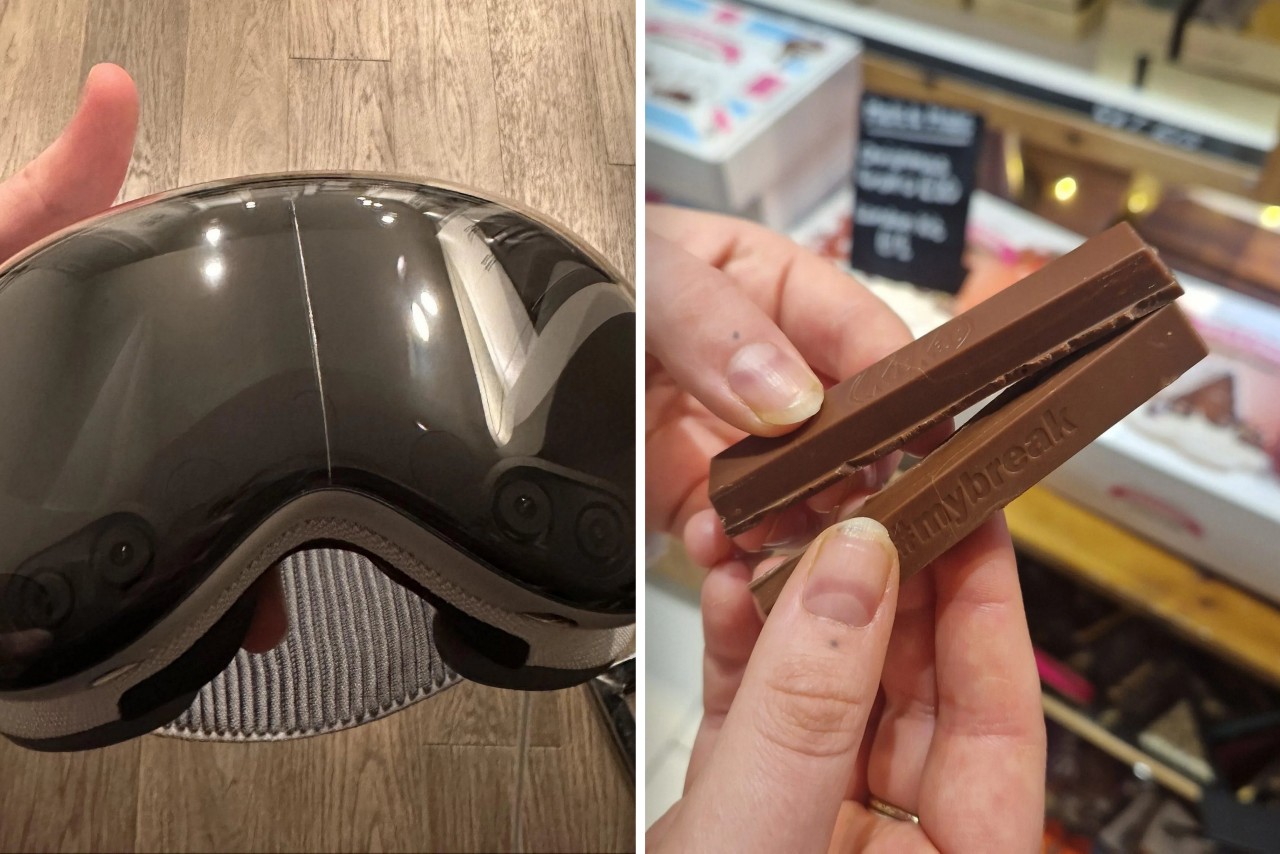
Unless you’re an absolute psychopath who chomps right into the KitKat bar, chances are you follow the protocol of breaking it down its linear ridge, creating individual KitKat fingers that you can easily eat. The bar’s practically designed for this interaction, allowing you to snap off individual ‘batons’ that you can either share or eat on your own. The physics behind this design is as simple as it gets. The individual fingers are connected by a small valley of chocolate, which can easily be snapped with little pressure. The reason the KitKat always breaks at this ridge is because it’s easily the most vulnerable part of the chocolate bar. Similarly, the Vision Pro has the same problem. The ‘nose bridge’ on the front is where the Vision Pro’s glass panel is at its narrowest. Apply enough stress to the area and chances are, just like a KitKat bar, it’ll break there first.
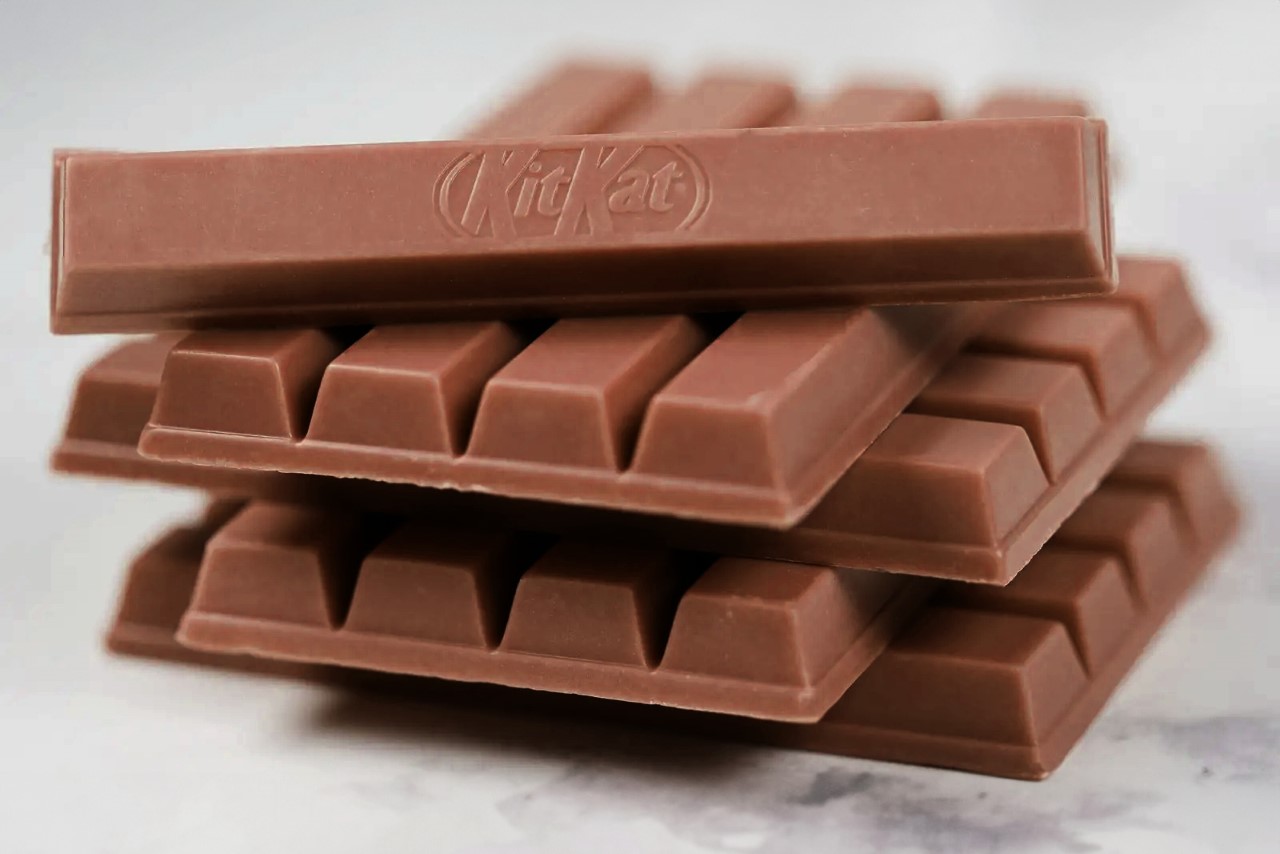
Heat could be a contributing factor to this structural weakness, but let’s not forget, the Vision Pro comes with a headband that’s secured to its sides. Wear the Vision Pro on your face, and the headbands tug on the headset from the left and right, while your face being the solid mass it is, applies forward pressure. The rest of the Vision Pro is made from Aluminum, a material famous for being able to bend easily (no points for guessing what the iPhone 6 was made of), but glass – especially curved and hardened glass like the one on the front of the Vision Pro – isn’t really susceptible to bending. The result? A crack at its weakest point, caused by people wearing the headset too tight, coupled with the obvious heat issues because people don’t turn their Vision Pro off every night.
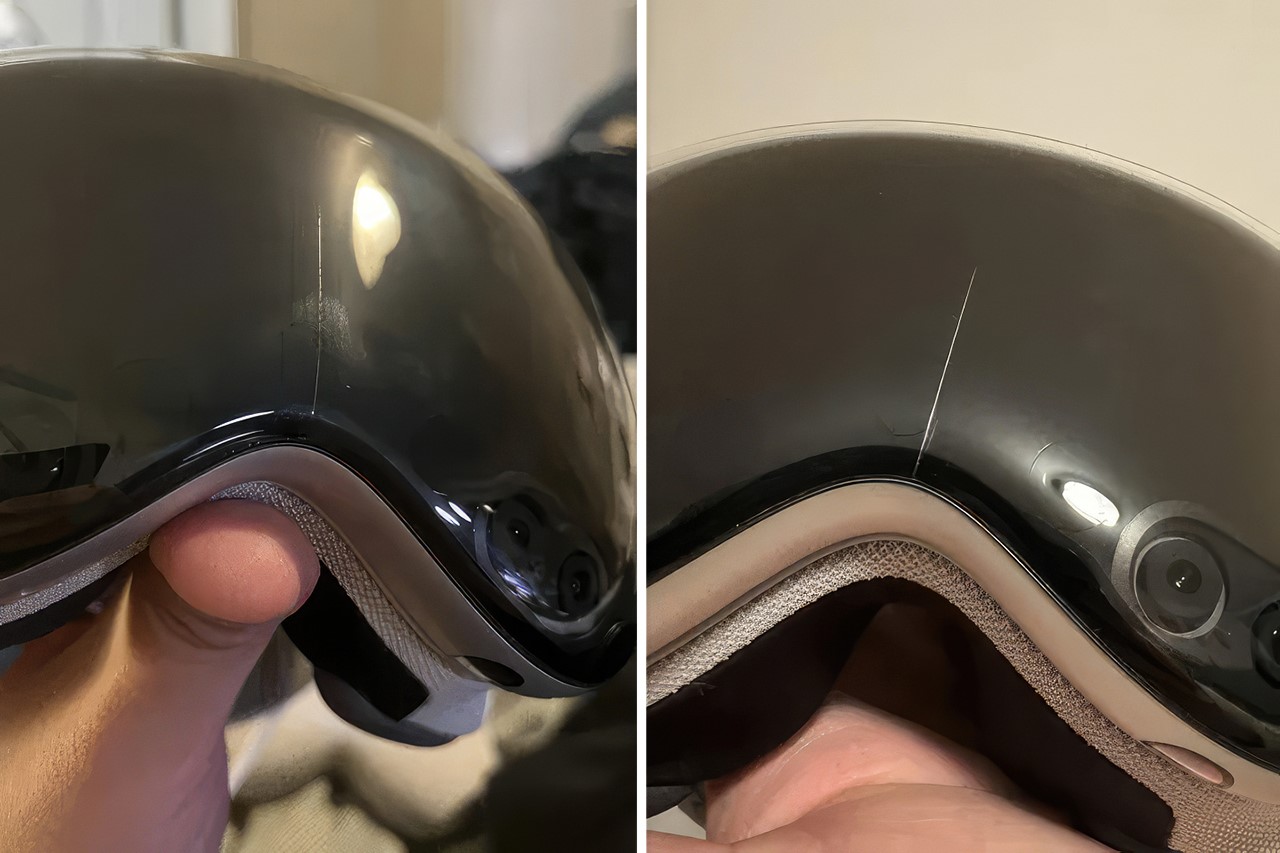
There are two solutions to this problem – the first comes from MKBHD and a bunch of other tech experts, who recommend turning the Vision Pro off after use and disconnecting the battery pack every night so the headset doesn’t keep running and heat up. The second solution is much more obvious, and is an indication of Apple’s hubris. In the pursuit of creating ‘the greatest spatial device ever seen’, Apple’s premium choice of materials is biting them in their backside. The Vision Pro’s aluminum structure is notoriously heavy, causing neck fatigue for people wearing it for long hours… but more importantly, the use of glass on the front seemed highly unnecessary. A well-polished plastic facade on the front would have worked just as fine, even if it didn’t line up with Apple’s ‘luxury’ image. It would have been stronger, easier to produce, and would probably have helped Apple cut costs and boost profits – to the benefit of the consumer. Instead, Apple’s being predictably silent while multiple users are fuming at the prospect of having a difficult-to-ignore crack on their rather expensive $3500 headset.
